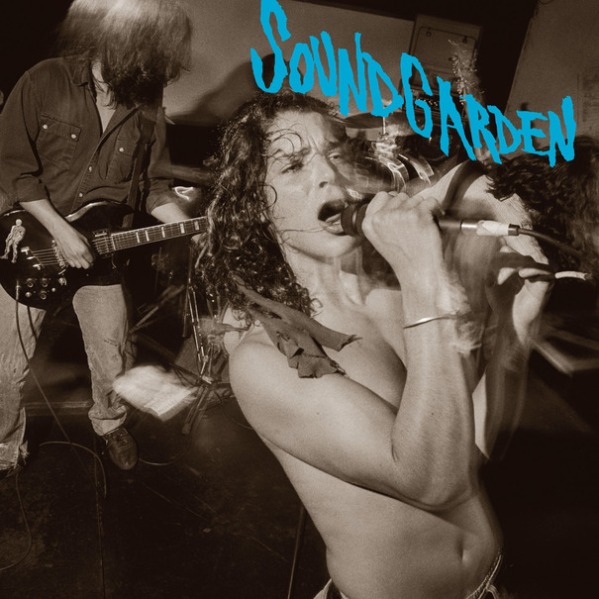Soundgarden : Screaming Life/Fopp

I’m sure I’m not the only one who rushed to pick up Soundgarden’s back catalog after falling in love with Superunknown, only to discover what seemed like an entirely different band, particularly on Screaming Life/Fopp. Indeed, it would be hard to make the case that Soundgarden were destined for greatness based to their first two EPs, but they are both fascinating and entertaining listens nonetheless. The jagged metal-by-way-of-The-Stooges approach on these releases serves to illustrate just what a different animal Seattle grunge was in the late ’80s compared to its commercial breakthrough in the ’90s. At the time, Seattle was essentially just another punk scene, albeit possibly the only one where it was still acceptable to listen to Led Zeppelin and Black Sabbath. The band was the first of the ‘big four’ grunge bands — also including Nirvana, Pearl Jam and Alice and Chains — to release a record (discounting Green River, which was made up of future members of Pearl Jam and Mudhoney), so it might be a little unfair to expect the band to come out of the gate fully formed. Soundgarden would continue to get better over the next couple of records, but would make real artistic leaps on 1991’s Badmotorfinger and 1994’s Superunknown.
Screaming Life, the band’s first EP, was recorded at Reciprocal Studios with “the godfather of grunge,” Jack Endino (who would produce Mudhoney’s classic Superfuzz Bigmuff and Nirvana’s Bleach) and it has his stamp all over it. Endino had a way of getting pretty big sounds out of a pretty stripped down set up. The EP feels at home among the Sub Pop releases of the day, if only due to his production. Chris Cornell’s four-octave wail and band’s Zeppelin riffs didn’t exactly have much in common with Nirvana or Mudhoney. In addition, you could already sense the band’s psychedelic tendencies throughout much of the guitar work.
What’s most entertaining about Screaming Life/Fopp is seeing all of the versions of the band that were eventually weeded out. The strained funk of “Little Joe” is an anomaly in the Soundgarden catalog — and let’s be honest, that’s probably for the best — but one can’t help but enjoy it all the same if only for novelty’s sake. Hearing Cornell’s unsettling screech on “Tears to Forget” is an interesting look at a vocal approach he’d largely leave behind. In addition, the band certainly wasn’t as self-serious in the early days, which in turn results in a handful of amusing but disposable tracks. For one, “Sub Pop Rock City” — which was originally a part of the Sub Pop 200 compilation — takes playful jabs at the emerging label’s rising profile. It’s fun for a listen but should have been left off as it doesn’t really add anything to this release. The cover of the Ohio Players’ “Fopp” on the other hand is actually pretty successful at providing some meaningless fun (the dub version on the other hand, is completely unnecessary).
There are plenty of highlights here; “Hunted Down,” “Nothing to Say” and “Entering” all succeed at an eerie, but still fairly accessible garage psychedelia. As for the remastering, it seems like this version is slightly crisper, however it’s mostly indiscernible to my ears. Not that it’s of any real consequence, these aren’t the kind of recordings you really want cleaned up anyway. On both Fopp and Screaming Life, Soundgarden are still in the early stages of a long evolution, yet one can’t help but marvel at a band that would grow by leaps and bounds over the next few years, eventually turning in three stellar albums before breaking up for the first time. There’s a rough-hewn appeal to these EPs that’s, for good measure, difficult to find in the rest of their output.
Similar Albums:
 Mudhoney – Superfuzz Bigmuff
Mudhoney – Superfuzz Bigmuff
 Jane’s Addiction – Nothing’s Shocking
Jane’s Addiction – Nothing’s Shocking
 Smashing Pumpkins – Gish
Smashing Pumpkins – Gish

